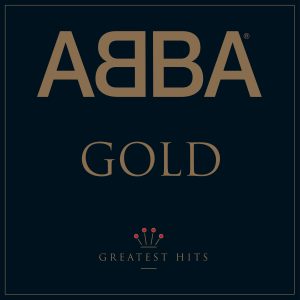IN FOCUS: ABBA Gold At 30
 Three decades have passed since the amazing hits collection ABBA Gold was first released – and today it is one of the biggest albums of all time.
Three decades have passed since the amazing hits collection ABBA Gold was first released – and today it is one of the biggest albums of all time.
Out in the cold
It is the strange nature of pop music that artists who are among the most popular one moment, may suddenly and abruptly find themselves out in the cold the next. That was what happened to ABBA a couple of years into the 1980s when the four members took a break from the group, a break that eventually was extended interminably. As pastel colours and shoulder pads became the fashion, so did brand new artists grab the attention on the pop music scene. Tastes and trends had shifted and the music of the 1970s, which ABBA had defined so much, sounded like yesterday’s news.
For ABBA themselves, this was not a surprise. They were well aware that, in terms of being at the centre of what’s hot and happening, a pop group has a natural lifespan of maybe a decade, if they’re lucky. Agnetha, Björn, Benny and Frida wanted to move forward and explore new musical territories, so it was time for others to accept the responsibility of delivering first-class pop music to the world. Björn would remember thinking that maybe ABBA’s songs would be heard on the radio every now and then, but, apart from that, the group would fade into a distant memory, as so many pop acts had done before them.
How delightfully wrong he was. For after underground rumblings started at the end of the 1980s, nostalgic affection for ABBA grew until it all exploded in 1992. On 21 September that year, a compilation album entitled ABBA Gold – Greatest Hits was released. Today, 30 years later, it’s still selling and has, with more than 32 million copies sold, become one of the most successful albums ever issued by any artist. It is no exaggeration to say that ABBA Gold paved the way for one of the most extraordinary revivals in the history of the entertainment industry.
Number one hits
It all began in 1989 when Stig Anderson – ABBA’s manager and sometime songwriting partner – sold all his music business companies, including ABBA’s record label Polar Music. The new owners were the large music publishing and record company Polygram (since then, Polygram itself has been bought by Universal Music). Because of Polar’ complex licensing deals with various record companies around the world, Polygram decided to wait until all those deals had expired before they went ahead and tried to do something with ABBA’s music.
By 1992 the time had come to set those plans in motion, kicking off with a powerful compilation album of as many of ABBA’s hits as possible. The album was compiled by Polygram International’s Chris Griffin and Jackie Stansfield, Polydor UK’s George McManus, Ingemar Bergman of Sweden Music and Polar in Sweden, and music journalist John Tobler, who also wrote the liner notes for the album. But which tracks to include? Well, the album seems to have pretty much compiled itself: all nine UK number one hits – the UK being ABBA’s biggest and most loyal market outside their home-country of Sweden – were natural track selections, and then the most notable of their many other hits. ‘Thank You For The Music’ had never been a major global hit but was maybe included as it was regarded as something of a signature song, its message being a celebration of music in general and, in the context of this compilation, ABBA’s music in particular.
A glorious output
As for the running order of the album, Chris Griffin would later remember that he tried to sequence the tracks as if it were a radio show. So, the album starts by drawing you in immediately with ‘Dancing Queen’, ABBA’s most famous song, and then journeys through the ballads, the fun hits and the dance classics, before it ends with ‘Waterloo’, an affectionate nod to the group’s international breakthrough in the 1974 Eurovision Song Contest. There are three tracks each from the albums Arrival, ABBA – The Album and Super Trouper, a whopping four from Voulez-Vous, two from the 1975 album ABBA, and one each from Waterloo and The Visitors. Of course, there were also the two single-only hits ‘Fernando’, which spent a mind-blowing 14 straight weeks at the top of the Australian singles chart, and ‘Gimme! Gimme! Gimme! (A Man After Midnight)’, later successfully sampled by Madonna in her global monster hit ‘Hung Up’.
The title chosen for this powerful collection of ABBA classics was simple enough: ABBA Gold –Greatest Hits, signalling exactly and truthfully what you were going to get when you bought this album, namely the absolute cream of the group’s magnificent output. When it was released, the record company probably expected at least a couple of million copies would be sold. Everyone could sense that there was an ABBA revival in the air, so this would be a very good result indeed for the efforts invested in the disc.
A success that never ends
But the success of ABBA Gold went beyond anything anyone could ever have imagined. The early 1990s had seen a rising nostalgia for the 1970s, and just like ABBA had been out of fashion for a decade, it was now the acts from the 1980s that seemed like yesterday’s news. ABBA’s hits, meanwhile, sounded like a welcome reminder from a glorious past. With time, though, it became clear that this rekindled affection for ABBA went beyond any temporary nostalgia. Long after the memories of platform boots and flared trousers had faded, the massive success of ABBA Gold proved that this Swedish pop band had secured an eternal place in the global pop music pantheon.
For ABBA Gold just kept on selling – not just to those who remembered the music from the 1970s, but to new generations, some of which had not even been born when ABBA broke up. They responded to the sheer quality of the music and the variety contained on ABBA Gold, whether it was tongue-in-cheek pop hits such as ‘Waterloo’, compelling depictions of heartbreak in the shape of ‘SOS’, ‘Knowing Me, Knowing You’ and ‘The Winner Takes It All’, or brilliant dance tracks in the vein of ‘Voulez-Vous’ and ‘Gimme! Gimme! Gimme! (A Man After Midnight)’.
By the end of the 1990s, ABBA Gold had sold more than 15 million copies, and since then it has more than doubled that figure. In the UK, for instance, the album has returned to the number one spot several times, holds the record for number of weeks spent on the charts – more than 1,000 – and is the second-biggest selling album of all time, behind Queen’s Greatest Hits. In the US, ABBA Gold has sold around six million copies, making it an extraordinary success in a nation that never embraced ABBA to the extent that people did in almost every other country back in the 1970s. The global phenomenon that is the Mamma Mia! musical, based on ABBA’s song catalogue, has also helped refresh interest in ABBA Gold. Not least, Mamma Mia! is constantly sending new generations to discover the original versions of the songs they first heard in the stage or movie versions of the musical.
So, today, over 30 years after ABBA Gold was saw first released, it is our pleasure to salute its crucial place in the story of ABBA, and, above all, the fabulous music it includes. The album is, as ABBA themselves sang in ‘Super Trouper’, “part of a success that never ends”.
